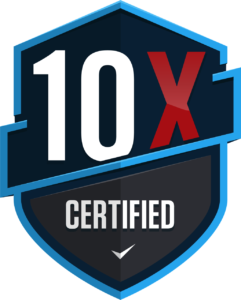In today’s fast-paced business world, the ability to sell effectively is more crucial than ever. But what if there was a way to amplify your selling skills and boost your team’s performance? Enter the world of sales business coaching, a realm enriched with expert sales coaching tips and comprehensive sales training. This comprehensive guide is tailored to demystify the concept of sales business coaching and underscore its vital role in entrepreneurial success.
Sales business coaching emerges as a transformative strategy to amplify your selling skills and elevate your team’s performance. This guide demystifies sales business coaching, highlighting its crucial role in navigating the modern market and enhancing sales strategies, skills, and overall performance. It serves as a key resource for entrepreneurs seeking to unlock the potential of their sales organization and adapt to the evolving buying experience.
Sales business coaching involves a seasoned sales coach working intimately with entrepreneurs, sales managers, and teams to forge a path toward improved sales outcomes. It’s a catalyst for growth, providing targeted solutions and practical insights into effective sales coaching. Whether the goal is to refine your own selling skills or to boost your team’s effectiveness, this guide offers a comprehensive overview of how strategic coaching can revolutionize your sales processes and drive business success. Let’s explore the transformative power of sales business coaching and how it can be a pivotal factor in your entrepreneurial journey.

What is Sales Business Coaching
Sales business coaching is a strategic process where an experienced mentor, often known as a sales coach, works closely with entrepreneurs, sales managers, and their teams. The goal is to enhance sales skills, refine sales strategies, and improve overall sales performance, utilizing advanced sales coaching techniques as part of the process.
The process of sales business coaching typically includes assessing the current sales processes and performance, setting specific goals for improvement, and implementing a sales coaching plan. This plan often incorporates a variety of sales coaching activities, such as one-on-one coaching sessions, team meetings, and practical exercises designed to improve sales rep performance. It’s not just about imparting knowledge; it’s about fostering a culture of continuous learning and adaptation to the ever-changing business landscape.
A key differentiator of sales business coaching from other types of business coaching is its intense focus on sales-specific skills and strategies. While general business coaching might address overall business strategy, leadership, and management practices, sales coaching dives deep into aspects like sales calls, customer engagement, closing techniques, and handling the sales cycle. It’s tailored to empower sales teams and leaders to excel in their unique sales situations, driving both individual and team performance.
In essence, sales business coaching is a specialized form of coaching that zeroes in on the art and science of selling. It’s about fine-tuning sales skills and strategies, understanding the modern buying experience, and aligning sales efforts with the broader business goals. This targeted approach is what sets sales business coaching apart, making it a vital tool for any sales-driven organization looking to boost its bottom line and stay competitive in today’s market.
The Evolution of Sales Business Coaching
Sales coaching, as a professional discipline, has evolved significantly over the years, mirroring the changing landscape of business and sales practices. Let’s take a journey through its development and understand how modern challenges have shaped contemporary coaching methods.
Early Days: The Foundation
Initially, sales coaching was more a matter of on-the-job training, where experienced sales reps would teach newcomers the ropes, often focusing on product knowledge and basic selling skills. This era was characterized by a strong emphasis on sales techniques and often used a one-size-fits-all approach. The selling system was predominantly product-centric, with less attention paid to the customer’s needs or the buying process.
The Shift to a More Strategic Approach
As the market dynamics shifted, so did the approach to sales coaching. The rise of strategic coaching marked a transition from a purely tactical focus to a more holistic view of the sales process, integrating both traditional and modern sales training methods. This phase saw the integration of broader sales strategies into coaching, where understanding customer needs and building relationships became just as important as the hard sell. Sales coaching began to embrace the concept of selling as a consultative process, not just a transaction.
Incorporating Technology and Data-Driven Insights
The advent of technology and the availability of sales data transformed sales coaching yet again. Sales coaches and managers started leveraging data to gain insights into sales rep performance, customer preferences, and market trends. This era introduced a more analytical approach to sales coaching, with a focus on measurable outcomes and performance improvement. Sales enablement tools and CRM systems became integral to the coaching process, providing a platform for tracking progress and identifying areas for improvement.
Modern Challenges and Adaptive Coaching Methods
In recent years, the sales landscape has become more complex, with the emergence of digital channels, changing consumer behaviors, and increased competition. These modern challenges have necessitated an adaptive and flexible approach to sales coaching. Today’s sales coaching is characterized by:
Personalization: Recognizing that each sales rep and team has unique strengths and challenges, modern sales coaching emphasizes individualized coaching plans.
Continuous Learning: With the rapid pace of change in sales environments, ongoing training and upskilling have become crucial. This includes staying abreast of best practices in digital selling, social media engagement, and understanding the modern buying experience.
Soft Skills Development: Modern sales coaching places a strong emphasis on developing soft skills such as emotional intelligence, adaptability, and effective communication, understanding that these are key to building long-term customer relationships.
Performance and Well-being: Recognizing the high-pressure nature of sales jobs, current coaching techniques also focus on the well-being and mental health of sales reps, promoting a balanced and sustainable approach to achieving sales targets.
The evolution of sales business coaching reflects a journey from transactional selling to building deeper, more meaningful customer relationships. It has adapted to embrace technological advancements, data insights, and the ever-changing sales environment, ensuring that sales teams are equipped not just to meet but exceed their targets in an increasingly complex business world.

Benefits of Sales Business Coaching for Entrepreneurs
Entrepreneurs who engage in sales business coaching can expect to reap a plethora of benefits, directly impacting not just their sales figures but the overall health and dynamism of their businesses. Let’s explore some of these key advantages:
Increased Sales and Revenue
The most tangible and immediate benefit of sales business coaching is an increase in sales and revenue. Effective coaching equips sales teams with the techniques and strategies needed to close more deals and boost sales performance. This is achieved through targeted solutions like refining the sales process, improving lead qualification, and enhancing closing techniques.
Sales coaches help in identifying and capitalizing on upselling and cross-selling opportunities, leading to greater revenue generation from existing customer bases.
Improved Sales Strategies and Processes
Sales business coaching provides entrepreneurs with insights into the best sales practices and strategies, tailored to their specific market and customer base. This includes developing a structured sales process that aligns with the customer’s buying journey.
Coaches work with sales teams to streamline and optimize sales processes, removing bottlenecks and improving efficiency. This results in a more systematic approach to sales, reducing cycle times and increasing conversion rates.
Enhanced Communication and Negotiation Skills
Effective communication is at the heart of successful sales. Sales coaching helps entrepreneurs and their teams improve their communication skills, ensuring they can effectively convey the value proposition of their products or services and engage customers compellingly.
Negotiation skills are honed, enabling sales reps to navigate complex deals, overcome objections, and close agreements that are beneficial for both the company and the client. This aspect of coaching is particularly vital in competitive markets where nuanced negotiation can make a significant difference.
Building a Resilient and Adaptable Sales Team
In today’s rapidly changing business environment, resilience and adaptability are key traits for any sales team. Sales business coaching fosters these qualities by teaching sales reps how to handle rejection, adapt to various sales situations, and remain agile in the face of market changes.
Coaching promotes a culture of continuous learning and improvement, encouraging sales teams to stay updated with the latest trends and techniques. This ensures that the sales team is not just equipped for today’s challenges but is also prepared to evolve with future industry shifts.
By embracing sales business coaching, entrepreneurs set their businesses on a path of sustained growth and success. It’s not just about immediate sales improvements; it’s about building a robust and scalable sales framework that can withstand the test of time and market fluctuations.
Components of Effective Sales Business Coaching
Effective sales business coaching is a nuanced and multi-faceted process, designed to yield significant improvements in sales performance and business growth. Several key components are essential for ensuring the effectiveness of a sales coaching program. Let’s delve into these crucial elements:
Individualized Coaching Plans
Tailoring the coaching experience to individual needs is critical. Every sales rep has unique strengths, weaknesses, and learning styles. An individualized coaching plan takes these into account, focusing on areas that will have the most impact for each person.
This personalized approach ensures that each member of the sales team receives the attention and guidance they need to develop their skills and knowledge effectively. It also helps in setting personal goals that align with the broader objectives of the sales team and the organization.
Focus on Measurable Goals and KPIs
Setting specific, measurable goals and key performance indicators (KPIs) is vital for tracking progress and ensuring accountability. These goals can range from improving the number of successful sales calls to increasing overall revenue or market share.
Measurable goals provide a clear direction and purpose for the coaching sessions, and KPIs offer tangible benchmarks to assess progress. This not only motivates the sales team but also allows for adjustments to be made in real-time, ensuring continuous improvement.
Integration of Technology and Sales Tools
Modern sales coaching programs incorporate technology and sales enablement tools to enhance the coaching process. This includes the use of customer relationship management (CRM) systems, data analytics tools, and digital communication platforms.
These tools provide valuable insights into customer interactions, sales cycles, and rep performance, enabling coaches to identify areas for improvement and offer targeted advice. Technology also facilitates a more interactive and engaging coaching experience, with the ability to track progress and share resources easily.
Regular Feedback and Adjustment of Strategies
Continuous feedback is a cornerstone of effective sales coaching. Regular check-ins and performance reviews help keep sales reps aligned with their goals and provide opportunities for constructive feedback.
The dynamic nature of sales means strategies and tactics may need to be adjusted frequently. A good sales coaching program emphasizes the importance of adaptability and learning from both successes and failures. Coaches work with sales teams to refine their strategies, ensuring they remain effective and relevant in the face of changing market conditions.
These components work in tandem to create a robust and impactful sales coaching program. By focusing on individualized plans, measurable goals, technology integration, and continuous feedback, sales business coaching can significantly enhance the performance and productivity of sales teams, driving substantial growth for the business as a whole.

Finding the Right Sales Business Coach
Selecting the right sales business coach is a critical decision for entrepreneurs. The effectiveness of the coaching process largely depends on the coach’s expertise, experience, and compatibility with your business goals and culture. Here are key considerations to help you find the right coach:
Criteria for Selecting a Suitable Coach
Experience and Track Record: Look for a coach with a proven track record of success in sales coaching. Experience in the field shows that they have dealt with various sales challenges and know what strategies work. Check their professional background, the types of companies they have worked with, and their successes in improving sales performance.
Compatibility: The coach’s style and approach should align with your business values and culture. A coach that understands and respects your business ethos will be more effective in communicating and implementing strategies that work for you.
References and Testimonials: Seek out feedback from previous clients to gauge the coach’s effectiveness. Testimonials can provide insights into the coach’s working style, areas of expertise, and the kind of results they have achieved for other businesses.
The Importance of Industry-Specific Experience
A coach with experience in your specific industry will have a deeper understanding of your unique challenges and opportunities. They can provide more targeted and relevant advice, having a firsthand understanding of the market dynamics, competition, and customer behavior in your industry.
Industry-specific experience also means the coach will be familiar with the best practices and emerging trends in your sector, which can be invaluable in developing a competitive sales strategy.
Testimonials and Case Studies
Testimonials from past clients provide real-world proof of the coach’s ability to improve sales performance. Look for stories and examples that demonstrate how the coach has helped businesses overcome challenges similar to yours.
Case studies are particularly useful as they give a detailed overview of the coach’s methodology and the results achieved. They offer insights into the coach’s problem-solving skills and ability to adapt strategies to meet specific business needs.
When choosing a sales business coach, it’s essential to ensure that their expertise and approach are a good fit for your business goals and sales team. The right coach can be a valuable asset, providing the guidance, strategies, and support needed to elevate your sales performance and achieve sustainable business growth.
An essential component of effective sales business coaching is a well-defined sales coaching process, which includes individualized coaching plans, a focus on measurable goals and KPIs, and the integration of technology and sales tools.
Implementing Sales Coaching in Your Business
Integrating sales coaching into your business is a strategic move that requires careful planning and execution. To ensure the effectiveness of the sales coaching program, involve the sales team in regular sales coaching sessions and workshops as part of their ongoing sales training.
Steps to Integrate Coaching into Your Business
Assess Your Current Sales Performance: Before beginning the coaching process, evaluate your current sales strategies, processes, and outcomes. This assessment will provide a baseline from which to measure improvement and help identify specific areas where coaching is needed.
Identify Specific Needs and Objectives: Determine what you want to achieve through sales coaching. This could include improving sales rep performance, enhancing sales strategies, or boosting overall revenue.
Select the Right Coach: Based on your identified needs, choose a coach with the relevant experience and expertise. Ensure their coaching style and approach align with your business culture and values.
Develop a Customized Coaching Plan: Work with the coach to create a tailored coaching plan. This plan should include specific goals, timelines, and the methodologies to be used.
Engage Your Sales Team: Introduce the coaching program to your sales team, highlighting its benefits and objectives. Encourage their active participation and commitment to the process.
Setting Goals and Expectations with Your Coach
Define Clear Goals: Set specific, measurable, achievable, relevant, and time-bound (SMART) goals with your coach. These goals should align with your broader business objectives.
Establish Expectations: Clearly communicate your expectations regarding the coaching process, including frequency of sessions, communication methods, and areas of focus.
Build a Collaborative Relationship: Foster a collaborative working relationship with your coach. Regular communication and feedback are vital for adjusting strategies and ensuring the coaching remains on track.
Measuring Success and ROI of Coaching
Track Progress Against Set Goals: Regularly review progress against the predefined goals. Use key performance indicators (KPIs) relevant to your sales objectives, such as conversion rates, average deal size, sales cycle length, and overall revenue growth.
Evaluate Sales Team Feedback: Gather feedback from your sales team on the coaching process. Their insights can help assess the impact of coaching on their performance and morale.
Calculate Return on Investment (ROI): To evaluate the financial effectiveness of the coaching program, calculate the ROI by comparing the cost of coaching against the increase in sales and revenue.
Adjust Strategies as Needed: Use the insights gained from these evaluations to make necessary adjustments to the coaching program, ensuring it continues to meet your evolving business needs and market conditions.
By thoughtfully implementing sales coaching in your business and continuously measuring its impact, you can ensure that your investment in coaching leads to tangible improvements in sales performance and overall business growth.

Sales business coaching is a transformative tool for entrepreneurs aiming to elevate their sales and drive business growth. It offers a wealth of benefits, such as increased sales and revenue, refined sales strategies and processes, enhanced communication skills, and the building of a resilient sales team. Unlike generic approaches, sales coaching is tailored to the unique challenges and opportunities of your business, ensuring relevant and actionable strategies.
The right sales business coach acts as a catalyst for transformation, bringing expertise, a fresh perspective, and continuous adaptability to your sales strategies. This kind of coaching is not just an investment in skill enhancement; it’s a strategic move towards long-term, sustainable growth in an ever-evolving market.
Embrace sales business coaching as a crucial component of your growth strategy. It’s about exceeding sales targets and paving the way for continued success and market leadership. For expert sales coaching tailored to your needs, reach out to Business Coach Denver. Let us help you unlock your full sales potential and propel your business forward.
As you reflect on the role of sales coaching in business growth, remember that the right coach can be a catalyst for transformation, bringing with them valuable sales coaching tips and proven sales coaching techniques to elevate your business success.

